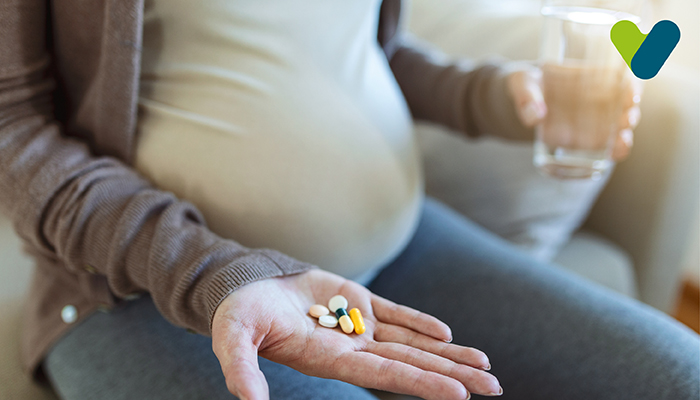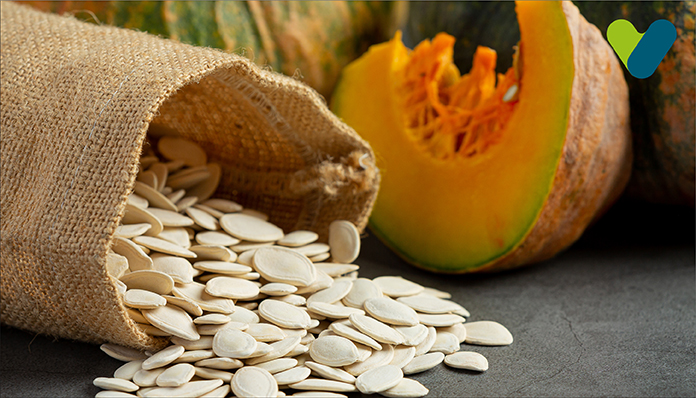Infertility can be a long and arduous journey. The treatments can often be long-term. Even after the long and patient wait, there is no guarantee that the money that has been spent on these treatments will bear any fruit. In such a scenario, there are many people who try out supplements that claim to be effective in males, females, or both. With the implication of modern techniques, many products are available in the market that can be costly and have variations in success rates.
Although there are many claims regarding the benefits of the supplements in getting pregnant, one needs to keep in mind that fertility vitamins are not regulated by a regulatory body. It is therefore highly recommended that before beelining your healthcare store, you discuss the same with your doctor/ nutritionist. So, if you are someone who wants to know what vitamins to take when trying to get pregnant, read on.
What is fertility vitamin? Do fertility vitamins work?
Micronutrients such as vitamins and minerals that are believed to increase the chances of a healthy pregnancy are called fertility vitamins. According to research, it is found that women who overuse antioxidant therapy might harm their fertility. On the other hand, some research has designated that fertility vitamin supplements have benefits, yet they have little to no effect on pregnancy.To help in increasing the chances of conceiving, some researchers have found that while taking the supplements and making changes in the lifestyle pattern such as limiting or quitting alcohol intake, quitting smoking, and reducing weight can show positive results. However, more research is required to find evidence on whether fertility supplements show positive results or not to make a significant difference in patient outcomes.
What are the different fertility vitamins for women?
- Vitamin A Vitamin A is known to be an essential element that humans require. Vitamin A has lots of benefits, but it is one of the crucial fertility supplements in women. For normal reproductive function, as well as different embryonic events throughout pregnancy, the body needs Vitamin A. This helps women with abnormal fetal defects and failure of implantation before reproduction.
- Vitamin E Vitamin E is known for playing a role in reducing wrinkles in women and is popular among skincare products. Vitamin is an effective fertility vitamin as it works in repairing cells and makes them active. The best part about Vitamin E is that it acts as an anti-ageing antioxidant and is an essential nutrient for ovaries. The best part of Vitamin E for fertility is that it supplements women who are trying to conceive as it supports the quality of eggs.
- Vitamin D Vitamin D and fertility are closely linked. Vitamin D is a crucial substance for the human body that acts as a prohormone. The role of Vitamin D is to assist our body with the absorption of calcium for bone health. It even plays a crucial part in cell growth, muscular function, immune response, and inflammation. Our skin naturally produces Vitamin D on exposure to Ultraviolet rays from the sunlight, hence also known as " sunshine vitamin." However, due to lifestyle changes, we often stay indoors or use sunscreen to prevent overexposure to Ultraviolet pollution, which reduces vitamin D production. Researchers have found that sufficient levels of vitamin D had higher rates of pregnancy and birth rates.
- Folic Acid Folic acid and ovulation are deeply connected. Folic acid or Vitamin B9 is a very common vitamin supplement for fertility in women. Consuming Vitamin B9 during pregnancy minimizes the risks of neural tube defects for the baby. Some studies have shown that folic acid increases fertility rates, making it great as a fertility supplement. As a prenatal vitamin, folic acid can also be taken as it shows positive results. Even women who are not conceiving can handle small amounts of folic acid daily.
- Vitamin K A woman must make sure that she herself and her baby is all set for labour and for the recovery needed later. Vitamin K plays a significant role in blood clotting and has wound healing properties. This helps women who have had blood loss during surgery. In order to minimize the risk of Vitamin K deficiency, an injection is given to all the babies just after they are born, although the chance is rare.
What are the risks involved in Fertility Vitamins?
Certain fertility supplements can alter the effects of other medicines when taken alongside. For example, if we are already taking medicines for parasitic infections or seizures, then the folic acid might interchange the actions of these medicines. Therefore, in order to avoid the unfavourable effects of the supplements, one should not take vitamin E for fertility alongside blood thinners and bile acid sequestrants.Even at high doses of the supplement, you can put yourself at risk with the side effects that include:
- The most frequent side effect is nausea and vomiting, along with headache.
- Skin rash due to an allergic reaction.
- Blurred vision can also occur.
- Intake of folic acid can increase the risk of heart diseases and cancer.
- NEC or Necrotising Enterocolitis can lead to a life-threatening congenital abnormality.


